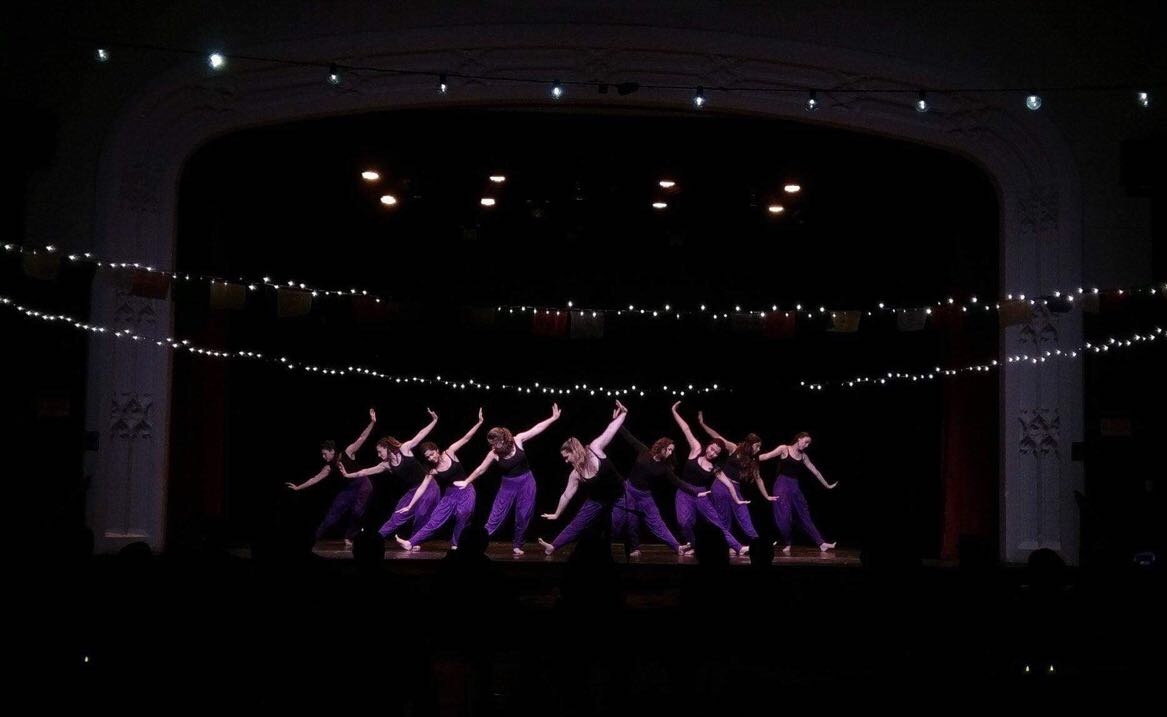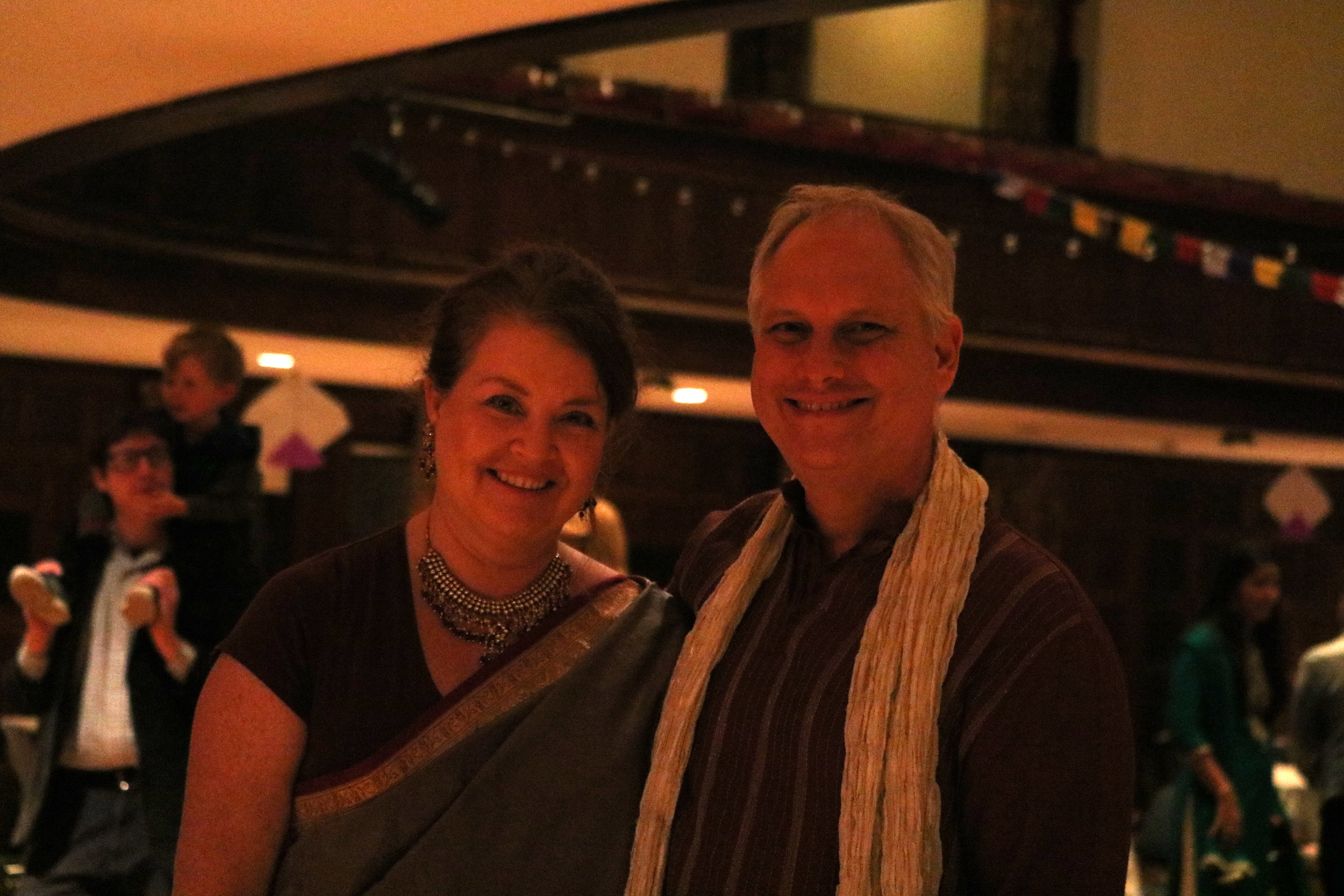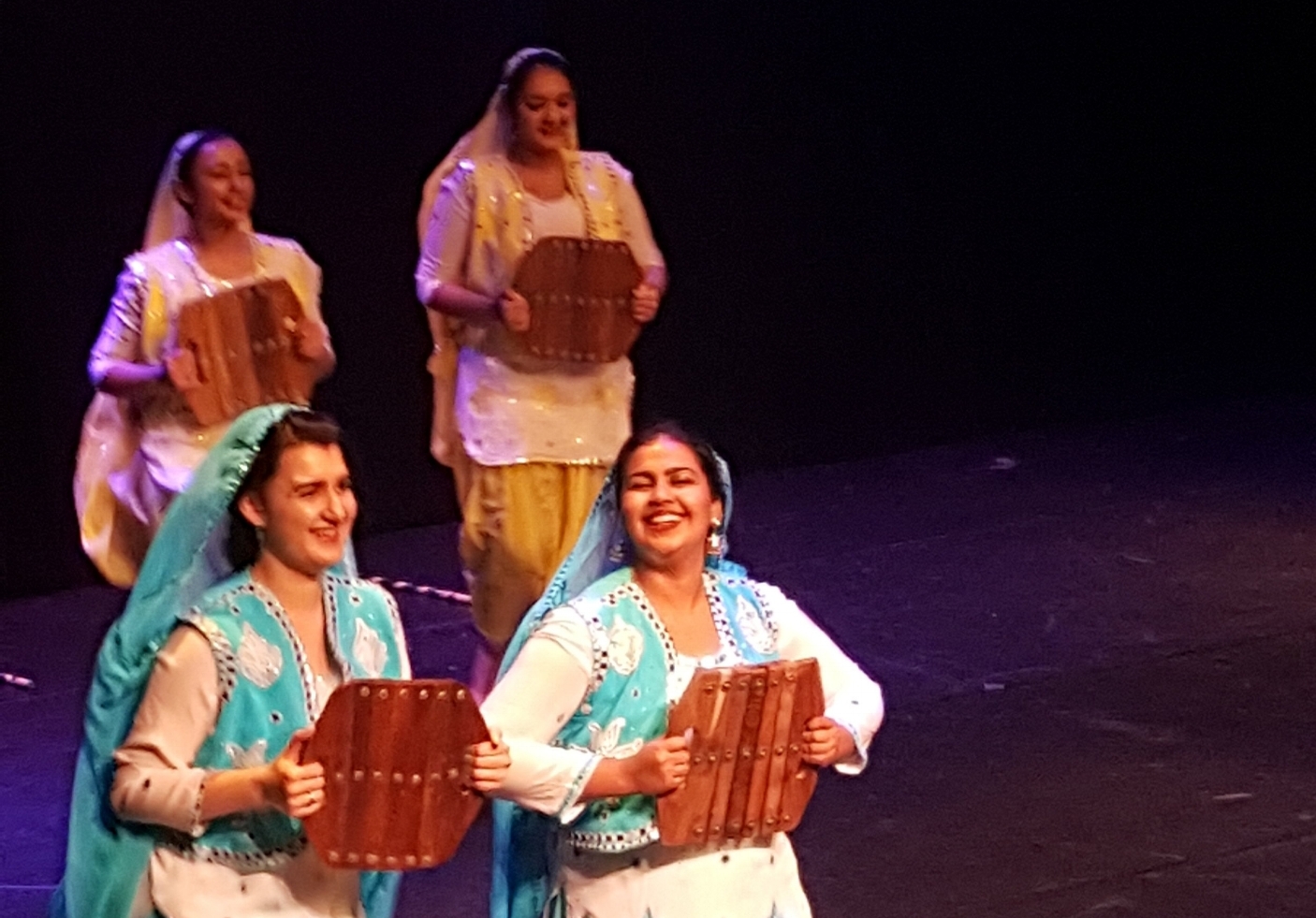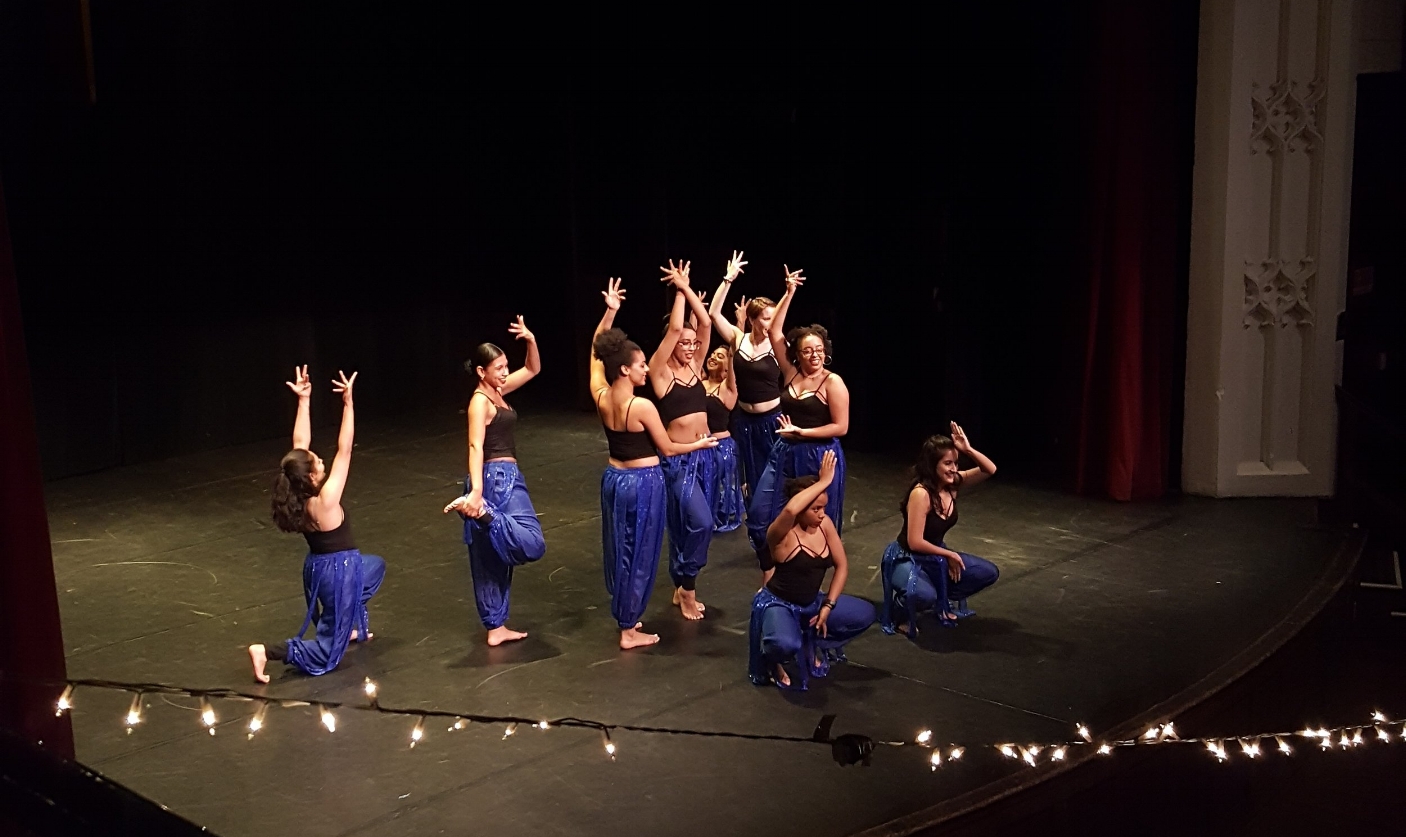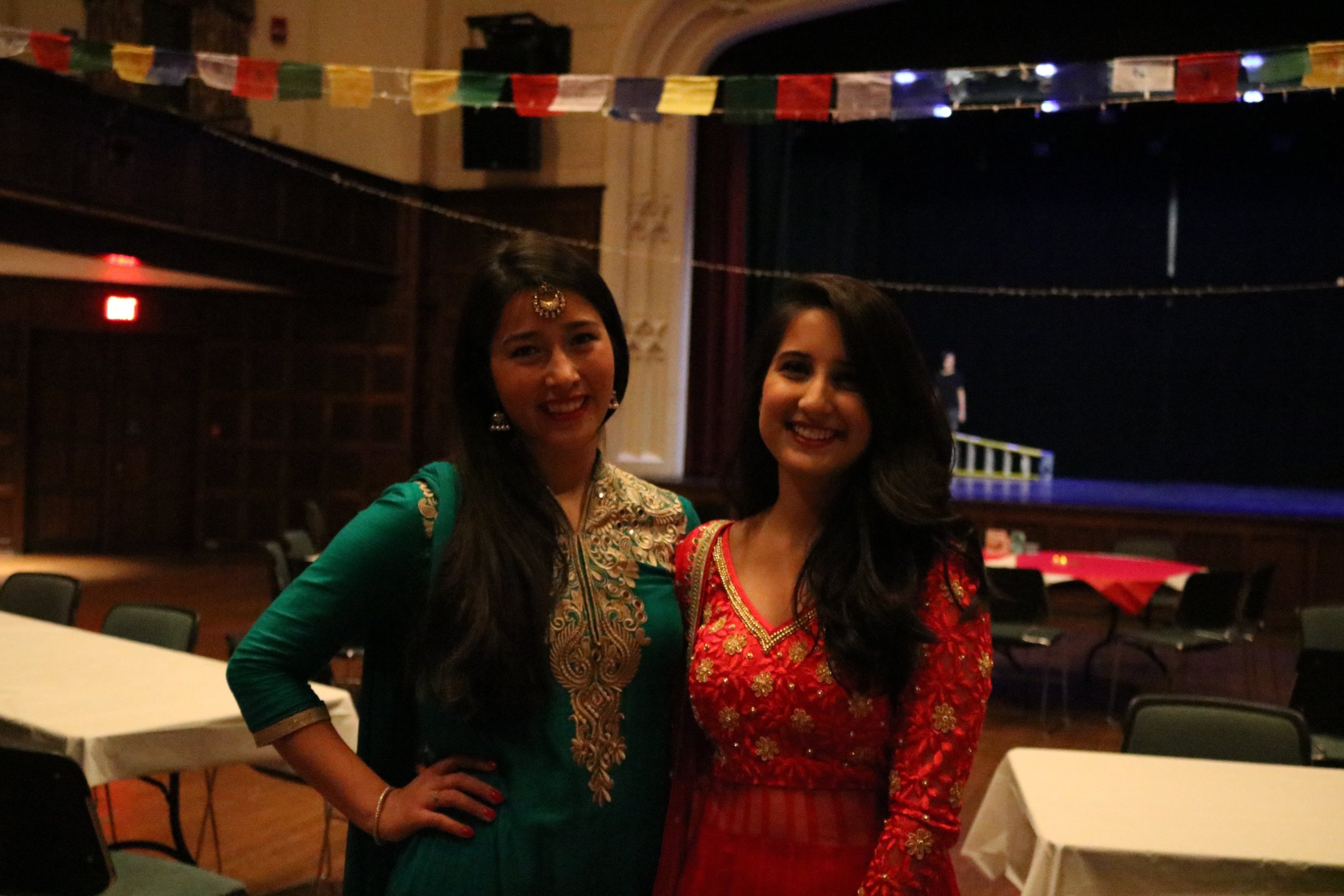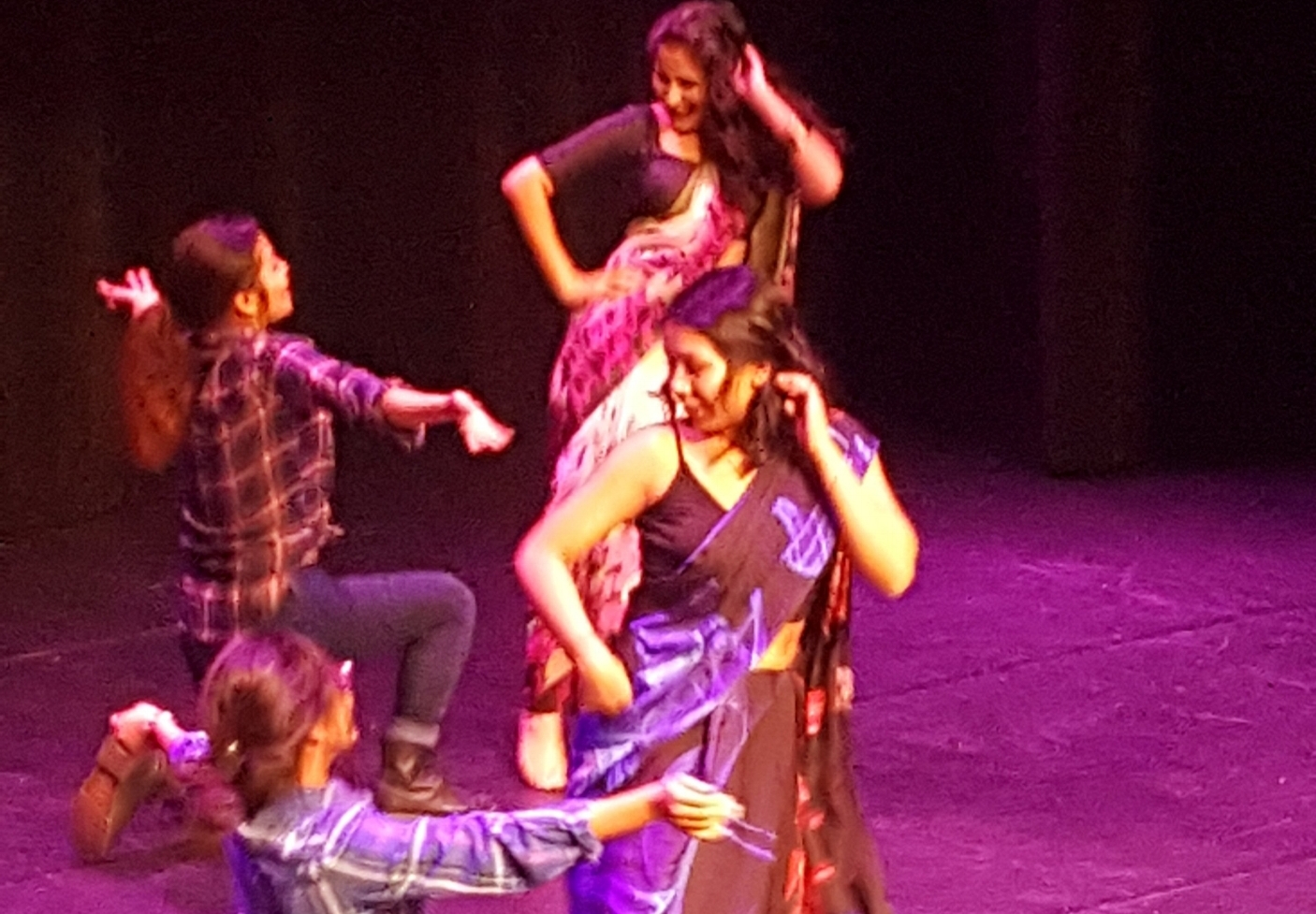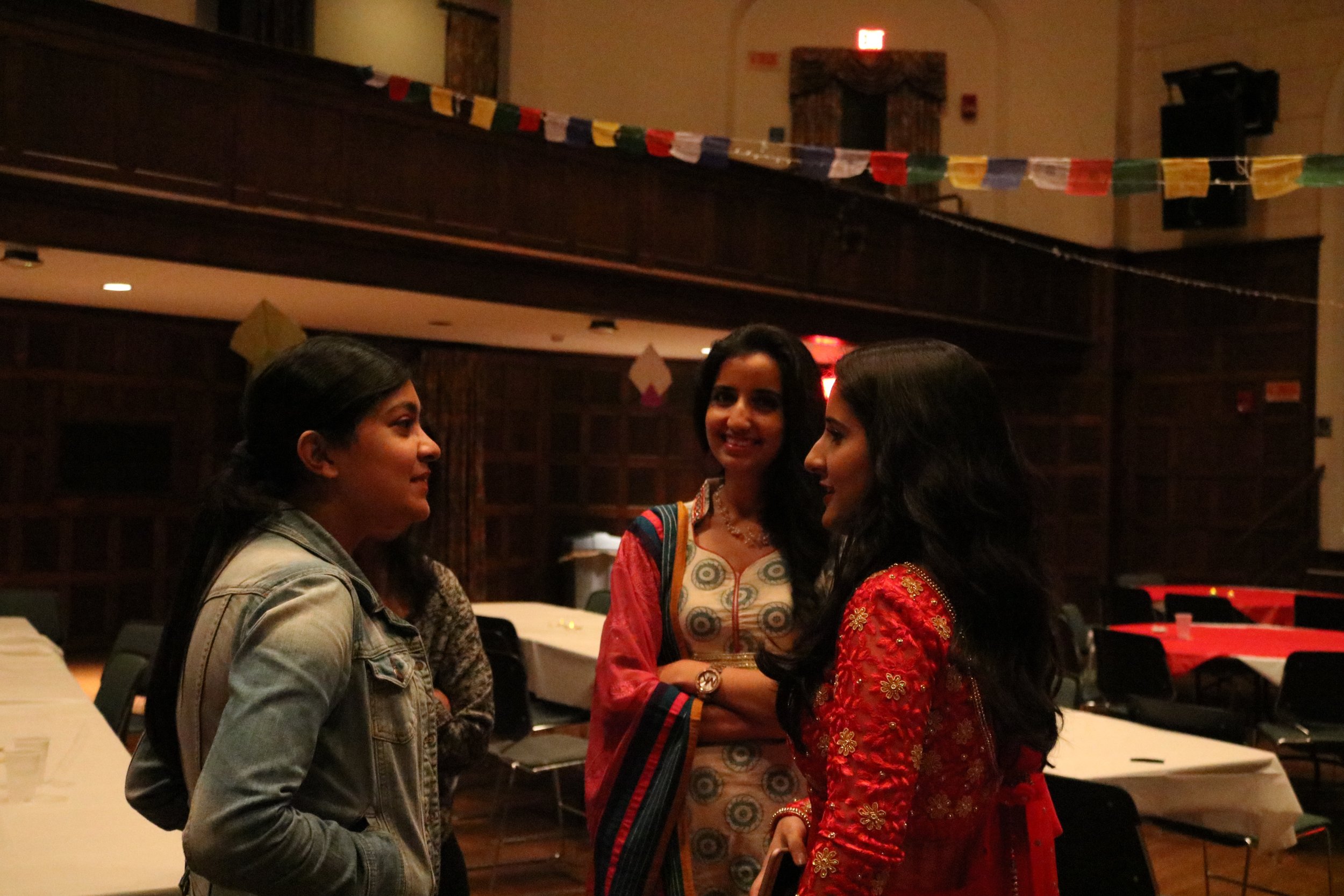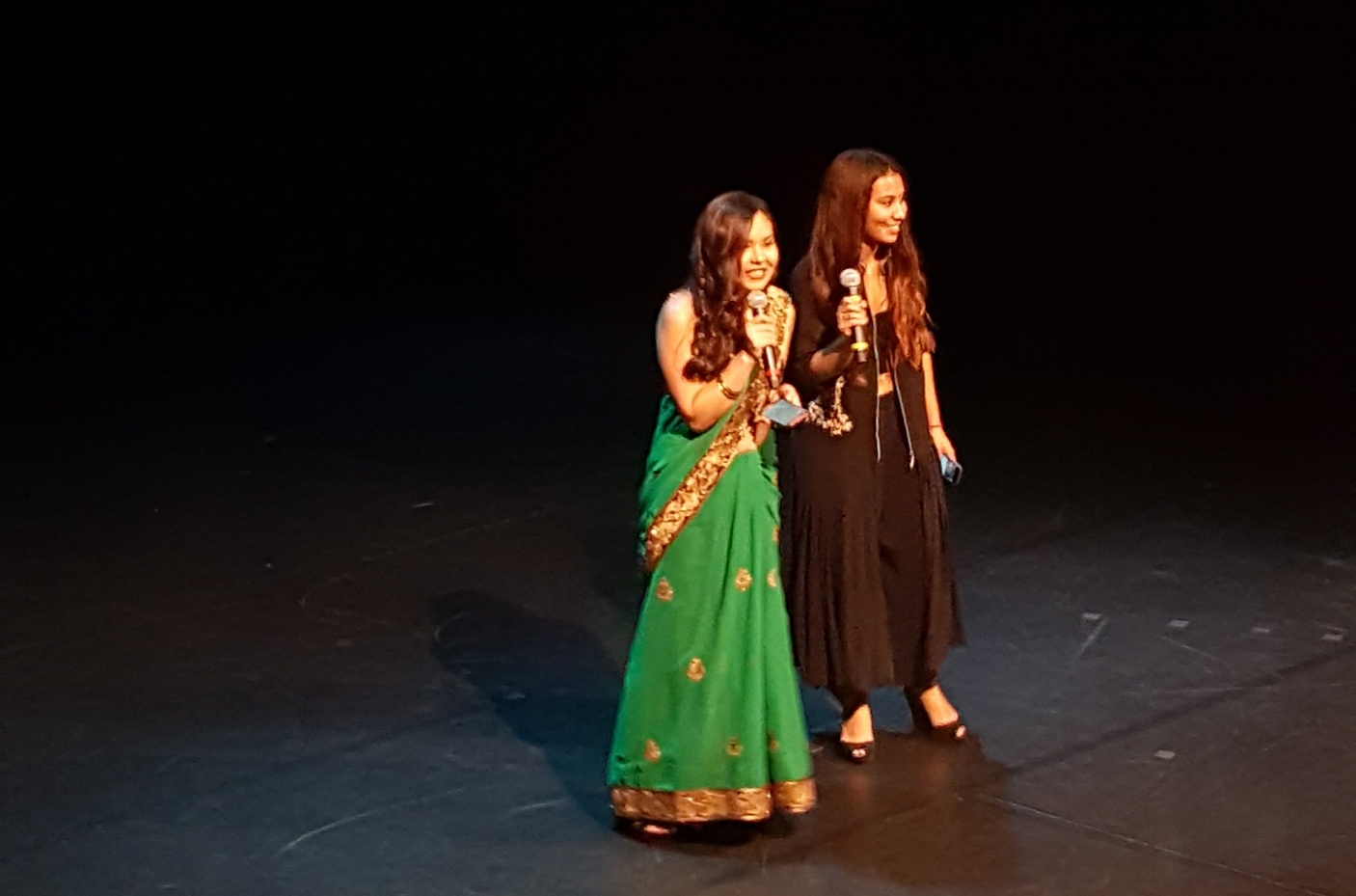BY VICTORIA WANG ’20
The Mount Holyoke College Nepali Student Organization (NEPSO) hosted Himalayan Night on Friday, Oct. 27. The organization seeks to promote awareness about Nepali culture among the Mount Holyoke community and further contribute to the cultural diversity of the campus. Himalayan Night is part of the Mount Holyoke College Diversity Nights tradition, which include events such as VariAsians and other cultural nights.
The event started with a dinner of traditional Himalayan food, which included steamed dumplings, Naan (a type of flatbread), curries and rice.
NEPSO teamed up with traditional singing and dancing teams from Mount Holyoke, who have performed at Himalayan Night since the event was first introduced on campus in 2014. Each team added their own interpretation of the culture they were introducing with their dances.
The Mount Holyoke Taal dancing group fused Bollywood, Indian classical and modern hip-hop in their dance pieces. Through this layered expression of multiple forms of dance, the team sought to serve as an informal forum for transcultural dialogue.
“It is really good that they are being inclusive of the Mount Holyoke community,” said Kritika Pradhan ’18, the chief organizer of this event. “[By] Mixing Bollywood and hip-pop together, team members who are not Indian/Pakistani also get the chance to flourish in the group.”
Aside from the traditional singing and dancing performances, Himalayan Night 2017 added a brand new segment, in which students narrated the culture they were representing through their outfits.
The ethnic diversity within Nepal is remarkable, said Pradhan. “There are over 100 ethnic groups in Nepal. It’s very fascinating how all of us are able to live together in harmony in such a small country.” She said they focused on Tibetan, Newar, Thakali and Brahmin cultures.
The Dean of International Students, Professor Donna Van Handle, said that the event is “very educational.”
“This is a great chance for Mount Holyoke students and faculty to be informed of knowledge about a foreign culture,” said Professor Handle.

